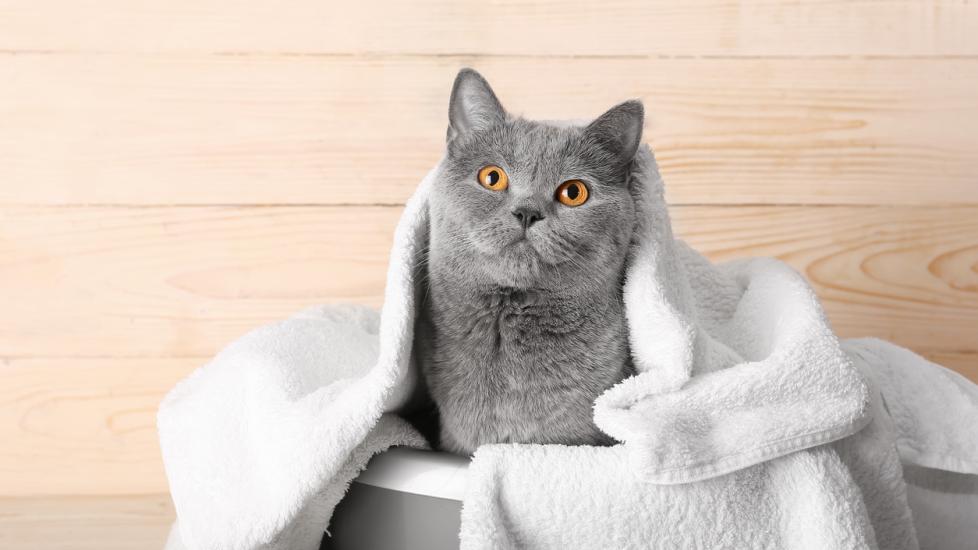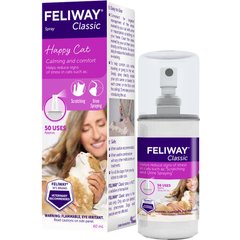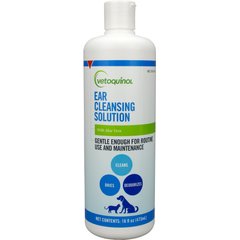How to Clean Your Cat’s Ears: A Complete Guide
Cats are intelligent creatures and great companions. They’re self-sufficient and fairly low maintenance—cats typically even take care of their own grooming.
However, a pet parent may need to help them clean their ears from time to time.
Health Tools
Not sure whether to see a vet?
Are You Supposed to Clean Your Cat’s Ears?
It’s a good idea to regularly check your cat’s skin and coat, as well as their ears.
Look for signs of infection, which include:
-
Odor
-
Redness
-
Swelling
-
Discomfort
-
Injury
-
Discharge
-
Itchiness
If you notice any of these symptoms, visit your veterinarian to determine the cause and the best treatment for your cat. Do not attempt to clean your cat’s ears at home if they show any signs of infection.
If their ears look dirty but aren’t causing any discomfort, then cleaning them at home may be an option. If you aren’t comfortable cleaning your cat’s ears, your vet can help you.
Do not attempt to clean your cat’s ears at home if they show any signs of infection.
What To Use To Clean Your Cat’s Ears
There are over-the-counter ear cleaners—such as Epi-Otic—that are safe for cats.
It’s important to check with your vet first to determine which specific cleaners are best for your cat. Their suggestion will depend on your cat and their overall health.
A cotton ball soaked with a vet-approved cleaner can be used to gently clean the inner part of your cat’s pinna (ear flap). It’s helpful to have another person to gently hold your cat while you clean.
Don’t use a cotton swab to clean your cat’s ears. This can push debris into their ear canal and potentially damage their eardrum.
It’s important to check with your vet first to determine which specific cleaners are best for your cat.
How To Clean Your Cat’s Ears at Home
-
Find a comfortable area and position for you and your cat. Wrapping your cat with a towel can help ease them during this process. You can even spray their towel with Feliway calming spray.
-
Carefully apply the vet-approved clean to their ear canal, either by squeezing some from a saturated cotton ball, or by squeezing a small amount directly from the bottle into their ear canal. Your vet may recommend ear cleaners like Epi-Optic or Vetoquinol.
-
Massage the base of your cat’s ear for a few seconds. Then, allow your cat to shake their head.
-
After your cat shakes out the excess cleaner, gently wipe their ear flap and opening of their ear canal with a cotton ball or with your finger wrapped in gauze.
-
Repeat these steps with your cat’s other ear.
-
Reward your cat with their favorite treat—such as Temptations—and affection!
To review these steps and follow an illustration, download here.
How to Clean Your Cat’s Ears FAQ
How much does it cost to get your cat's ears cleaned?
An ear cleaning is sometimes included in the cost of an exam with your vet. However, it may be a separate, smaller fee. It’s best to call your specific vet to ask what they charge for this service.
What is the black stuff in my cat's ears?
Black debris in your cat’s ears could simply be normal waxy discharge or could be a sign of an infection with ear mites or yeast.
If your cat is scratching at their ears or shaking their head, there's an odor or redness in their ears, or the debris you've cleaned comes back, take your cat for a vet visit.
Can I put hydrogen peroxide in my cat’s ear?
No! Hydrogen peroxide can be very irritating to the sensitive tissues inside of a cat's ear—it could seriously damage their ear canal.
Don't put put anything other than a specifically cat-approved ear cleaner in your cat’s ears. Make sure to check with your vet before using anything on or in your cat's ears.
Do indoor cats get dirty ears?
All cats can get dirty ears if they aren’t grooming properly or have a health problem.
If your cat is young and healthy and getting dirty ears, this could be a sign of an ear issues such as an ear infection.
Most cats will have generally clean ears.
However, if your cat doesn’t, or they are shaking their head and/or scratching at their ears, speak to your vet.
Featured Image: iStock.com/OksanaZulkarneeva




